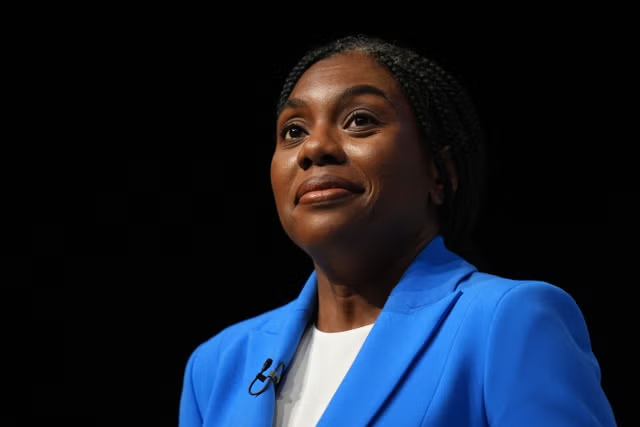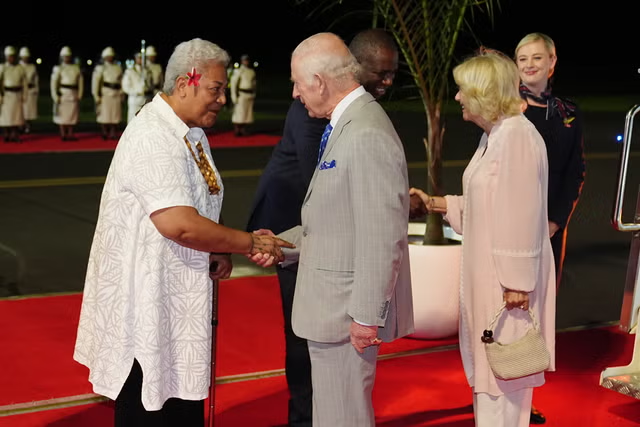MONTGOMERY, Ala. (AP) — Alabama lawmakers on Wednesday sharply questioned the head of the state parole board about their low release rates and why lawmakers had not received information they requested months ago from the board.
Leigh Gwathney, the chairwoman of the three-person Board of Pardons and Paroles, appeared before the Legislative Prison Committee in a sometimes tense meeting to take lawmakers’ questions about the parole process. The meeting was marked by a series of terse exchanges as lawmakers accused Gwathney of not answering their questions.
Alabama’s parole rate in Alabama has plummeted over recent years. The percentage of inmates being granted parole after their hearing fell from 53% in 2018 to a historic low of 8% last year. The rate rose back to about 20% this year but it continues to be well below the recommendations of state-created guidelines that suggest more inmates are worthy of release.
State Sen. Clyde Chambliss, a Republican from Prattville, expressed frustration that the committee has not received information it requested in January from Gwathney about parole rates and the decision-making process.
“Madame Chair, you said you would answer the questions that day we sat in your office. What has been going on from the time you said you would answer the questions until today? Disregard? How could we interpret it any other way? It has been months,” Chambliss said. Chambliss, who chairs the committee, asked Gwathney to provide the answers by the end of November.
Throughout the meeting Gwathney defended the board’s procedures, saying it gets information from a variety of sources and that each side is given equal time to make their case for and against parole.
“What we do to the best of our ability is to look at every individual who comes before us,” Gwathney said.
Rep. Chris England, a Democrat from Tuscaloosa, said the parole rate didn’t rise until the state was shamed for the scant number of releases.
“You inadvertently made the case that the board needs oversight,” England, a Democrat from Tuscaloosa, told Gwathney near the conclusion of the meeting.
England said after the meeting that it is clear that the system is broken. “The idea that only 8% of applicants out of the entire parole-eligible population are the only people that can get out — it’s just asinine,” England said.
Several lawmakers questioned Gwathney over the board’s lack of adherence to existing state guidelines regarding parole.
In 2020, Alabama put advisory guidelines in place, including a scoring system, to help determine if an inmate should be paroled The guidelines are advisory, and the board is not bound to follow the recommendation. However, parole rates significantly lag what the guidelines recommend. The board’s decision matched the recommendation in about 25% of cases in 2024, according to numbers from the Alabama Bureau of Pardons and Paroles.
Gwathney told lawmakers that none of the current board members wrote the guidelines and that she would “never make a decision based upon a quota.”
Chambliss responded that lawmakers were not suggesting a quota but wanted additional information about the guidelines and whether they should be changed
Rep. Matt Simpson, a Republican from Fairhope, said he believes the guidelines are too lenient. He said the guidelines are the problem instead of the board’s lack of adherence to them.
“When someone has got a sentence for a murder, and the guidelines are telling you 11 years later that they are supposed to be released, that is a problem with the guidelines,” Simpson said.
The plummeting parole rate came amid an ongoing prison crisis that has seen the state struggle with both overcrowding and finding enough security officers to staff prisons.
The board has come under a spotlight for parole decisions. The board in 2023 denied parole for a wheelchair-bound woman in renal failure after she served 19 years of a 35-year murder sentence. She was later released on medical furlough. The board in 2023 also denied parole to a man who had died 10 days before his parole hearing.
Several family members of incarcerated and formerly incarcerated people attended the meeting. Ebony Black, whose son was denied parole multiple times before his 20-year sentence ended, said the low parole rate robs inmates of hope.
“They have to go back to a war zone,” Black said of prison conditions.
Disclaimer: The copyright of this article belongs to the original author. Reposting this article is solely for the purpose of information dissemination and does not constitute any investment advice. If there is any infringement, please contact us immediately. We will make corrections or deletions as necessary. Thank you.



